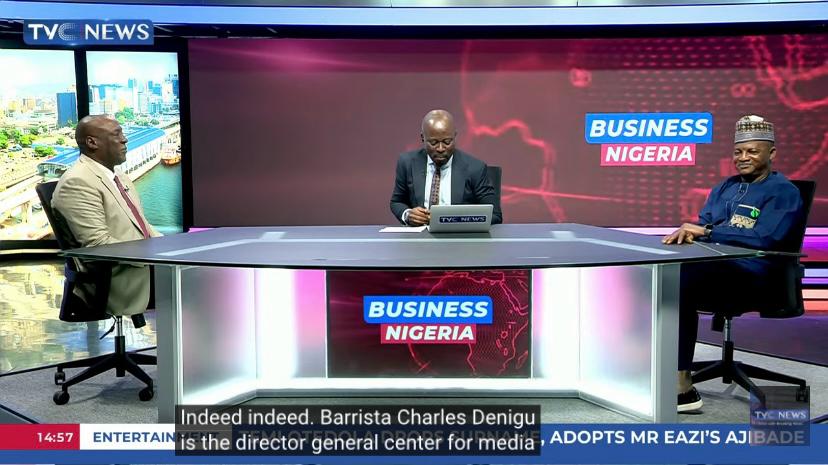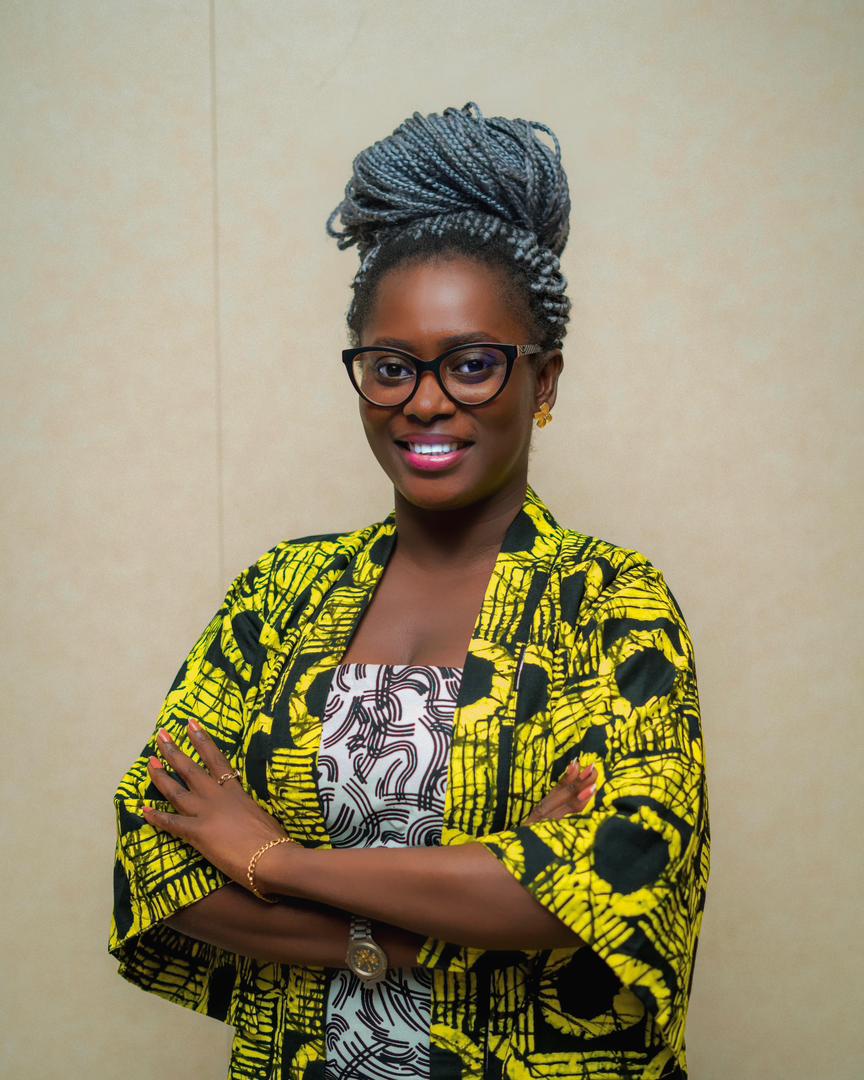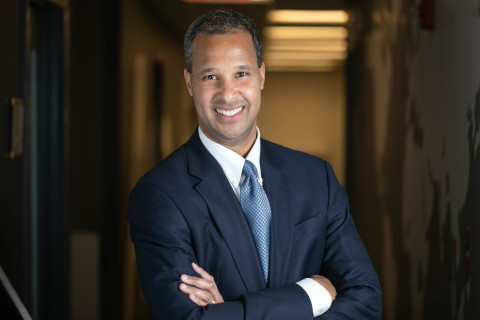Nigeria’s advertising industry, which PwC valued at N605.2 billion in 2023 according to its Africa Entertainment and Media Outlook, is on track to reach \$13.6 billion by 2028.
Despite its impressive growth, the industry continues to grapple with critical challenges that threaten its economic contribution.
Notably, PwC identifies Nigeria as the world’s fastest-growing entertainment and media market with a 12.1% compound annual growth rate,
while Statista forecasts that ad spend in the Advertising market will hit US\$1.04bn in 2025.
This positions Nigeria as one of Africa’s largest advertising markets.
Nigeria’s Economy Expands, Advertising Gains Importance
Meanwhile, Nigeria’s economy expanded by 3.13% year-on-year in the first quarter of 2025, up from 2.27% during the same period in 2024.
The services sector drove this growth, increasing by 4.33% and contributing 57.5% to GDP.
Therefore, the regulatory framework surrounding the advertising industry has become increasingly crucial for sustainable economic development.
Industry stakeholders describe the sector not just as a revenue generator but as an “economic enabler” powering trillion-naira business activities across multiple sectors.
ARCON Intensifies Reform Efforts
In response, the Advertising Regulatory Council of Nigeria (ARCON) has stepped up its efforts to resolve these challenges, particularly focusing on crippling industry debts and delayed payments that have long plagued Nigeria’s advertising sector.
Simultaneously, the council is strengthening its regulatory framework for digital platforms.
Speaking on TVC News during a program titled “Nigeria Advertising Regulation Framework and The Digital Platforms Enforcement,” which Abimbola Mohammed monitored,
ARCON’s director general, Dr. Olalekan Fadolapo, joined Barr. Charles Odenigbo, director general of the Centre for Media and Law Development (CMLD), to discuss comprehensive industry solutions.
Payment Delays Threaten Industry Sustainability
Dr. Fadolapo revealed the damaging effects of extended payment cycles on industry sustainability.
In contrast, Barr. Odenigbo offered legal insights into Nigeria’s evolving advertising regulatory framework.
“Globally, there’s a payment threshold — in the UK it’s 30 days, in Europe it’s 30 days, and in some African countries it’s 45 days.
But when you come to Nigeria, somebody will be giving you a deal of 180 days, 120 days,” Dr. Fadolapo stated. “180 days is like six months.
Imagine a client that says ‘bill me every quarter.’ When will you collect? What is the time value of money?”
He explained that this cycle traps agencies in a system where they work from January to March, bill clients in April, and then wait an additional 120-180 days for payment.
As a result, cash flow and business operations suffer significantly.
Digital Advertising Under ARCON’s Scrutiny
Next, Dr. Fadolapo addressed common misconceptions regarding ARCON’s oversight of digital media.
He emphasized that the agency regulates advertising content—not the digital platforms themselves.
“Content is divided into three: information, entertainment, or advertising.
We don’t regulate information. We don’t regulate entertainment.
We only regulate advertising on traditional media or digital media,” he clarified.
This distinction, he noted, is crucial as Nigeria transitions from e-commerce to a full digital economy.
Dr. Fadolapo identified three key stakeholders in the digital advertising ecosystem: operators (business owners), the public (vulnerable consumers), and the government (regulatory gatekeeper).
“If the government as gatekeeper chooses to leave the operator and the vulnerable general public, there will be maximum exploitation of the general public through advertising,” he warned.
He pointed to over one trillion-naira losses from Ponzi schemes as evidence of unchecked digital advertising abuse.
Nigeria’s Dual Regulatory Model Explained
In addition, Barr. Odenigbo outlined Nigeria’s comprehensive advertising legal framework anchored by the Advertising Regulatory Council of Nigeria Act 2022
“The apex law that regulates advertising today is the ARCON Act 2022, which brought the entire industry community together under one basket,” he stated.
According to him, Nigeria operates under a dual regulatory system, which combines self-regulation by industry bodies with statutory government oversight through ARCON.
This system promotes a corrective, rather than punitive, approach by requiring advertisers to submit materials for pre-exposure vetting to prevent harmful content.
“In Nigeria, we practice a corrective regulatory framework.
Before the action comes up, the law says before you expose an advert, either on traditional media or new media, submit it to ARCON,” Dr. Fadolapo explained.
“If there is any mischief, misinformation, disinformation claim, it would have been solved before you expose.”
Local Content Policy Enforced
Furthermore, Dr. Fadolapo defended ARCON’s enforcement of local content requirements.
He clarified that the directive originates from the Federal Ministry of Information and National Orientation under the government’s “Nigerian First” policy.
This policy aims to prevent the offshoring of production, which denies local talent crucial opportunities.
“You want to produce an advert for the Nigerian market.
You can spend as much as 750 million naira, 1 billion naira to produce an advert.
Now you take this particular advert to another country, collect your commercial in a flash drive, and fly back to Nigeria after investing 1 billion in that economy,” he illustrated.
The ARCON DG questioned such practices: “Are you saying that the ladies and men in Nigeria are not beautiful or handsome enough to grace your product?
Are you saying you cannot find similar voice in Nigeria?”
As a result, under this policy, advertisers must prove Nigerian involvement in production including models, voice-over artists, and technical crew to strengthen the local advertising ecosystem.
Court Upholds Tribunal’s Powers
Significantly, Barr. Odenigbo highlighted a legal victory in the case of Digi Bay Nigeria vs. the Attorney General of the Federation and ARCON.
In April 2025, the Federal High Court ruled that ARCON holds the authority to issue queries for advertising law violations.
The court also affirmed the Advertising Offences Tribunal’s (AOT) power to impose penalties.
“The court held that ARCON is the body that has the power to issue query to those who violate advertising law in Nigeria.
It also gave recognition to the fact that AOT has power to impose penalties stipulated in the act,” he said.
The AOT, established under Section 37 of the ARCON Act, holds criminal jurisdiction throughout Nigeria.
It has handled over 300 cases since its inception, with appeals going directly to the Court of Appeal by passing lower courts.
Industry Remains Under-Regulated, Officials Say
Despite concerns, both officials dismissed suggestions that Nigeria’s advertising industry is over-regulated.
Instead, they argued for stronger oversight.
“The space is under-regulated.
We are still scratching the surface,” Odenigbo asserted, citing widespread digital advertising abuse targeting children and vulnerable populations.
Dr. Fadolapo revealed that ARCON recently intercepted an abortion-related advert sent into Nigeria from abroad, showcasing the challenges of cross-border digital advertising.
“You can be in another country, as close as Ghana, and you’ll be throwing advert into Nigeria,” he noted.
Vetting Process Further Clarified
Dr. Fadolapo clarified that ARCON does not vet advertisements directly.
Instead, it supports the Advertising Standards Panel (ASP), a 20-member body representing the organized private sector and regulatory agencies.
This panel oversees pre-vetting, vetting, and post-vetting compliance checks.
Currently, only three categories remain exempt from vetting: obituaries, vacancy announcements, and bank financial reports.
However, pressure is mounting to include financial reports in vetting.
The agency previously excluded goodwill messages until a controversial bank advert stating it would “rise like Agege bread” prompted policy review.
ARCON Reforms Industry Ethics and Payments
To combat systemic challenges, ARCON has introduced several reforms, including zero debt policies, pitch protection fees, and disengagement protocols.
One such protocol ensures that clients cannot terminate agency relationships while still owing substantial debts and then immediately hire new agencies.
“You can fire your agency.
However, if you are firing your agency, make sure you close the account and bring the business to closure.
You can’t be owing me 500 million, fire me, and engage agency B,” Dr. Fadolapo explained.
Regulatory Future Focuses on Accountability
In conclusion, ARCON’s regulatory framework aims to build an ethical and accountable advertising landscape.
It seeks to protect consumers while ensuring the sustainability of Nigeria’s trillion-naira advertising industry.
Both officials emphasized that the country needs stronger—not weaker—regulation as the sector continues to grow as an economic enabler.
REGISTER FOR MARKETING EDGE STAKEHOLDERS SUMMIT







Comment
No comments found.